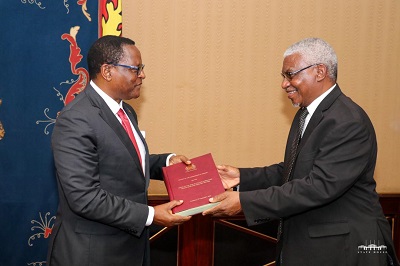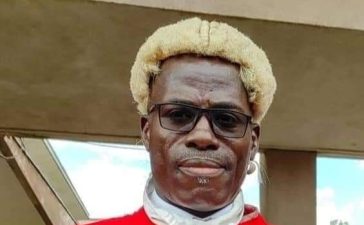The outcome of the Commission of Inquired chaired by retired Supreme Court of Appeal Justice Edward Twea has exposed imperial eccentricity at play in Malawi.
The Malawi President, Lazarus Chakwera, seized his Constitutional powers and responsibility to institute a Commission of Inquiry to enquire into the arrest of the Director General of the Anti-Corruption Bureau (ACB), Martha Chizuma, who was arrested by police on 6th December 2022. The President announced the Commission of Inquiry on 9th December, 2022.
The basic mission of the inquiry was to execute seven Terms of References (ToRs) comprising the task to investigate circumstances leading to the arrest and matters ancillary to the incident.
It could be suspected that the necessity of the Commission arose from the level of public interest in the incident which saw both local and international stakeholders expressing their disagreement with the arrest and proceeded to condemn it.
Further preliminary reveals indicated that the police executed the arrest of the high-profile figure bypassing a protocol of informing the executive such that the Minister of Justice and the President were kept in the dark until the arrest was reported in the media.
The American and British ambassadors in Malawi were among the notable international stakeholders who chipped in with strong condemnation on the arrest. Beside the condemnation, the American embassy, in particular, demanded an immediate release of Chizuma.
The outing of the Twea Commission of Inquiry report has exposed the depth to which the American envoy assumed imperial authority over the incident. According to the inquiry report, the US Ambassador demanded an immediate unconditional release of Chizuma and that if that was not done, the US Government would subject the people involved in the arrest to travel bans as well as “impose economic sanctions on the country”.
Apparently, this is a complacent and intrusive stance assumed by the US Ambassador exploiting the fact that Malawi is poor and survives on donor corporation in which the US Government and all instruments at its disposal such as the International Monetary Fund (IMF) and World Bank are key ‘development’ and [rather] survival partners of Malawi.
Malawi’s quest to survive leaves her venerable to such acts of bullying whereby the so-called international development partners (which are not development partners per se) can, without adverse consequences on their part, intrude into Malawi’s domestic affairs without shame.
This intrusion comes across as more of a destructive force to their own post-colonial ambitious project to smaller countries like Malawi. This extent of meddling into domestic affairs of poor countries like Malawi is totally undesirable.
Malawi is now reduced into a country that cannot make its decisions with a strict sense of caution to avoid looking bad in the eyes of the British or American governments and some politically-immersed locals are ignorantly sustaining this imperial stench emerging from their economic superiority.
For the record the improper arrest of Chizuma needs to be condemned in its entirety just as the President of Malawi and several domestic State and non-State actors did. But as it has transpired, through the findings of the Commission, the arrest was only sanctioned by the Police on a complaint by Director of the Public Prosecution who had sour working relationship with the Director General of ACB.
The state machinery was abused by powers that are not characterizing the Government. Why then would imposing economic sanction be a tool to brandish against Malawi in such circumstances? The threat of sanctions to Malawi was not only too harsh, but also foolish considering that if anything, the leadership of this country had no hand in the issue.
At the rate this trend is going, one would only be dreaming to assume that Malawi is an independent State and that the US Government and allies of its sort respect the sovereignty of countries that they assist with money.













